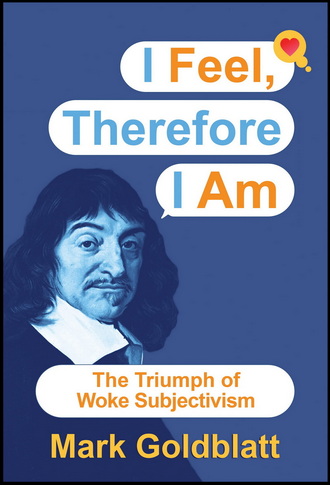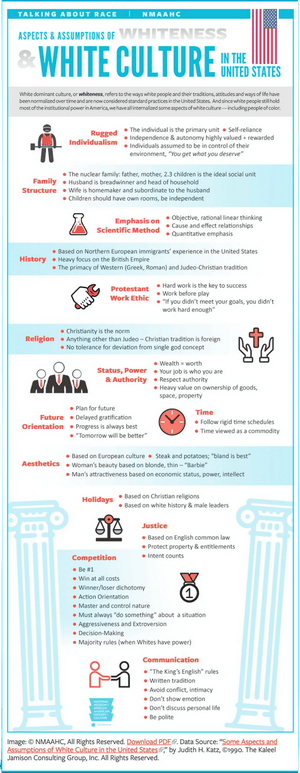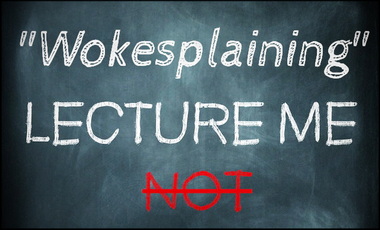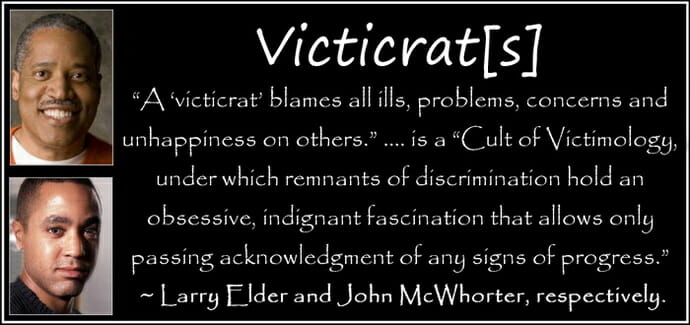Glenn Loury and John McWhorter talk with Mark Goldblatt about the mistaken epistemological premises of wokeism, which prioritizes subjective experience over objective fact.
The following is with a hat-tip to and an “adding to” Mark Goldblatt’s book, “I Feel, Therefore I Am: The Triumph of Woke Subjectivism“ (New York, N.Y.: Bombardier Books, 2022), 40-43. 
I will be adding links and graphics to the post… the graphic is linked to a larger one upon clicking it.
Why then do CRT advocates simultaneously reject the reality of racial categories yet embrace racial essentialism (a contradiction that would be deadly except in an avowedly postmodern movement)? Because they need to account for the failure of black people to measure up to non-black people in a number of statistically significant ways; they therefore need to argue that the criteria of measurement themselves reflect a bias against black people. To make that case, however, you must presuppose that black people are in some sense essentially distinct from non-black people. You must presuppose that, on a fundamental level, black people are wired differently.
Think about it. If black people are wired differently, you have a ready-made narrative of victimization. To take the most obvious example: you have a full explanation for why the scores of black kids lag behind others on standardized tests, and you have compelling proof of how past racism–in this case, the assumption of “white wiring” as the intellectual norm—continues to hold back black people.
The normalization of the way white minds work thus becomes a quintessential tool of white supremacy. That’s the premise behind the notorious “Whiteness” education portal sponsored by the Smithsonian’s National Museum of African American History and Culture. The original centerpiece of that portal was a chart (later withdrawn, after a public outcry) titled Aspects and Assumptions of Whiteness and White Culture. [RPT says see NATIONAL REVIEW, WASHINGTON TIMES, and the WASHINGTON EXAMINER for more.] What “aspects” and “assumptions” are we talking about? Here’s a partial list:
- Objective, rational, linear thinking
- Cause and effect relationships
- Quantitative emphasis
- Hard work is the key to success
- Work before play
- Heavy value on ownership of goods, space, property
- Plan for the future
- Delayed gratification
- The nuclear family: father, mother, 2.3 children is the ideal social unit
- Follow rigid time schedules
- Decision-making
- Written tradition
- Be polite
These, according to the Smithsonian’s National Museum of African American History and Culture, are essentially white things. Black people cannot be expected to adapt to them or value them in the same way white people do; it’s not in the nature of black people to do so.
Of course, the notion that black people are just different didn’t spontaneously evolve in the halls of the Smithsonian. It’s commonplace among critical race theorists. So, for example, we hear educational consultant and Columbia University Professor Maria Tope Akinyele explain:
Black people, we are relational people. We are people of context. Like, it’s very Western and European to dissect and analyze and take apart things, whereas [in] Afrocentric schooling or Afrocentric spirituality or African epistemology or ways of knowing, everything is connected. So this is why education is not working for so many students of color because we are context-driven people. We can’t tell a story without telling the ten things that happened that led up to that moment. There’s no such thing as like thinking in isolation—isolating yourself from nature, from your family. It’s just not part of our ways of knowing and being in the world. So when we tap into the ways that we understand the world, students are able to make wonderful connections and unleash their brilliance and their wisdom. (Black on Black Education)
Sounds like a straightforward endorsement of racial essentialism. Except twenty minutes later, in the same You Tube talk, she recounts a training session she held for a group of predominantly white instructors at which, “….about seventy percent of them did not know that race was a made-up thing. Like did not know! And I was like, ‘Who is teaching you?’ This is disrespect!”
CRT, again, has three legs: Collective grievance. Subjective historiography. And racial essentialism. The glue that holds it together is the postmodernist rejection of rationality as an arbiter of truth. Postmodernism is the reason it’s fruitless to point out that Professor Akinyele is contradicting herself. What possible difference would that make to her? What difference could it make within a CRT framework?
THOMAS SOWELL DEBUNKS LIES ABOUT BLACK EDUCATION
THE ORIGIN OF THE LEFT’S WAR ON WHITE PEOPLE IN AMERICA



